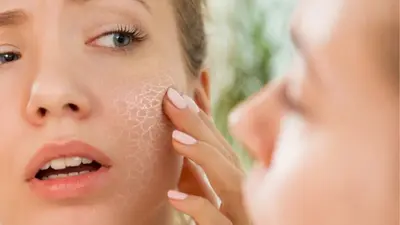The Importance of Nutrition for Healthy Skin
Nutrition is fundamental to maintaining healthy skin, as it provides the essential nutrients that support its structure and function. A balanced diet can greatly influence the appearance, texture, and overall health of your skin. In this article, we will delve into how nutrition affects skin health, highlight key nutrients, and offer practical dietary tips for achieving a radiant complexion.
First and foremost, it’s essential to recognize that the skin is the body’s largest organ. It acts as a protective barrier against environmental factors like UV radiation, pollution, and harmful pathogens. Therefore, nourishing your skin from the inside out is crucial for its integrity and resilience. Skin health can be greatly improved and a variety of skin issues can be addressed with a diet high in vitamins, minerals, antioxidants, and healthy fats.
Vitamin A.
One of the standout nutrients for skin health is vitamin A. This vitamin is vital for the production and repair of skin cells, helping to maintain elasticity and prevent dryness. Foods abundant in vitamin A, such as carrots, sweet potatoes, spinach, and kale, can contribute to a youthful appearance and lower the risk of skin issues.
Vitamin C
Vitamin C is another powerhouse nutrient that plays a significant role in skin health. It shields the skin from oxidative stress brought on by free radicals because it is a strong antioxidant. Additionally, vitamin C is crucial for collagen synthesis, which is necessary for maintaining skin firmness and elasticity. Incorporating citrus fruits, strawberries, bell peppers, and broccoli into your diet can improve skin texture and reduce signs of aging.
Vitamin E
Vitamin E is well-known for its protective properties. It acts as an antioxidant, neutralizing free radicals and preventing skin damage. Furthermore, vitamin E supports skin hydration and enhances overall skin appearance. Consuming foods high in vitamin E, such as green leafy vegetables, almonds, and seeds, will help you look radiant.
minerals are essential for healthy skin
Additionally, minerals are essential for healthy skin. For example, zinc is essential for skin healing and repair, helping to regulate oil production and reduce acne occurrences. Zinc-rich foods include lentils, cattle, pumpkin seeds, and oysters. Ensuring you get enough zinc can support skin clarity and reduce inflammation.
Omega-3 fatty acids are necessary for the preservation of the skin’s barrier function.. These healthy fats help keep the skin hydrated, reduce inflammation, and protect against sun damage. Fatty fish like salmon and mackerel, as well as flaxseeds and walnuts, are excellent sources of omega-3s. Including these foods in your diet can lead to healthier, more resilient skin.
Hydration
Hydration is another key aspect of nutrition for skin health. Maintaining the suppleness and hydration of your skin requires drinking adequate water. Dehydrated skin is more likely to wrinkle and might look lifeless. Aim to consume adequate fluids throughout the day, and consider incorporating hydrating fruits and vegetables like cucumbers and watermelon.
Antioxidants
Antioxidants are essential for shielding the skin from harm caused by the environment. They reduce free radicals and oxidative stress, which can hasten aging.. Foods rich in antioxidants, such as berries, dark chocolate, and green tea, can enhance skin protection and promote a youthful appearance.
On the other hand, a diet high in processed foods and sugars can negatively affect skin health, leading to inflammation and exacerbating conditions like acne and eczema. It’s advisable to limit sugary snacks, sodas, and processed foods, focusing instead on whole, nutrient-dense options that support overall health and skin vitality.
Skin health is also significantly influenced by lifestyle factors. Stress can worsen skin disorders like psoriasis and acne and have a negative impact on skin’s appearance. Managing stress through practices such as yoga, meditation, or regular exercise can benefit your skin. Additionally, getting enough sleep—aiming for seven to nine hours each night—is crucial for skin repair and regeneration.
Finally, think about how smoking and drinking affect skin health. Both can lead to premature aging and skin damage; alcohol dehydrates the skin, while smoking reduces blood flow and oxygen supply. Limiting alcohol consumption and avoiding smoking can significantly enhance your skin’s appearance and health.
Conclusion
In summary, nutrition is vital for maintaining healthy skin. A well-balanced diet rich in vitamins, minerals, antioxidants, and healthy fats can improve skin health and appearance. Important nutrients for the resilience and integrity of skin include zinc, omega-3 fatty acids, and vitamins A, C, and E. Staying hydrated and limiting processed foods can further support skin vitality. By making informed dietary choices and adopting a healthy lifestyle, you can achieve radiant, healthy skin that reflects your overall well-being. Remember, nourishing your skin from within is the key to unlocking its true potential.












2 thoughts on “The Importance of Nutrition for Healthy Skin”